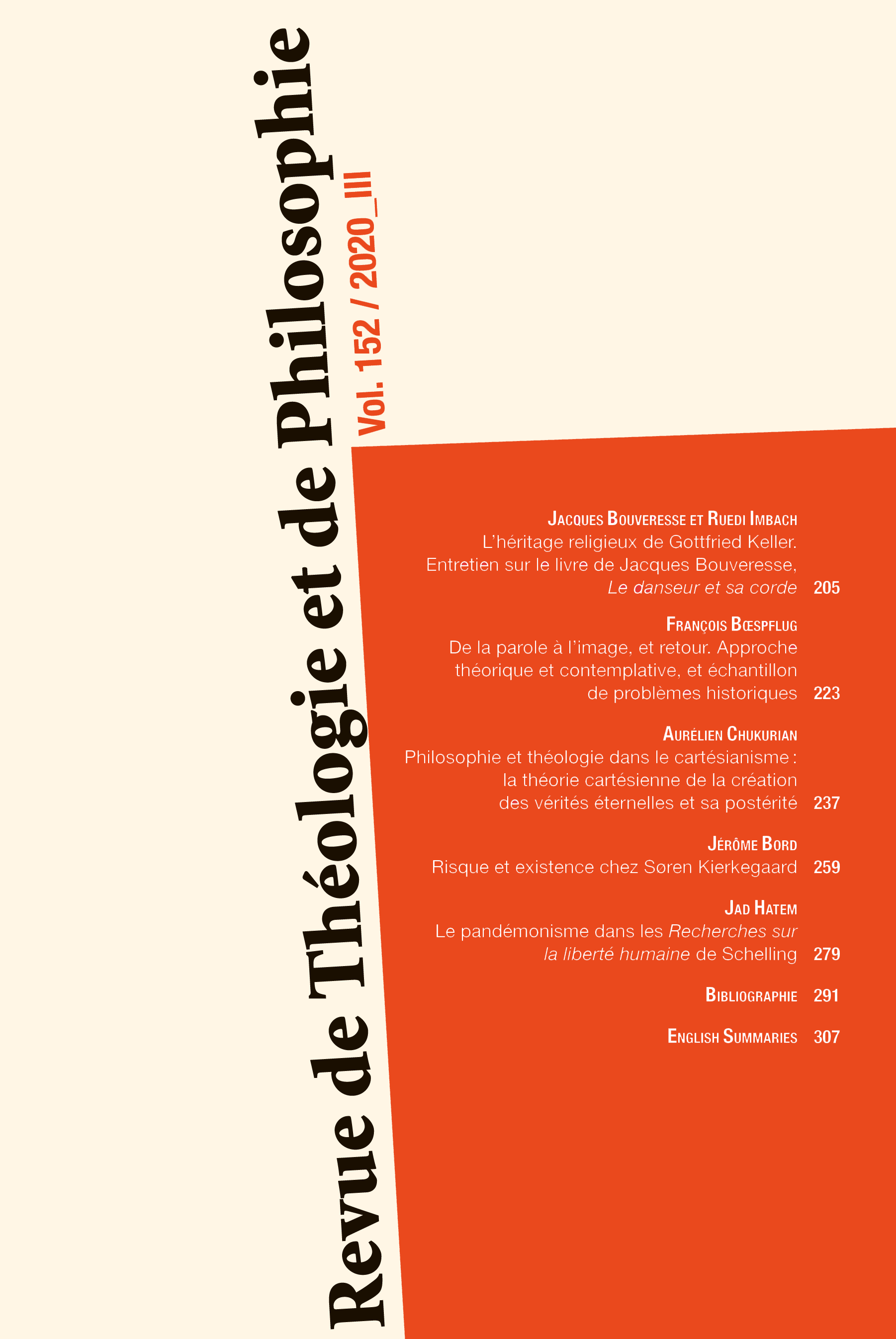Risk and Existence in Søren Kierkegaard
Abstract
The theme or “risk” runs through Kierkegaard’s entire corpus. It not only reinforces the dynamism and depth of his thought : it also enables him to articulate a philosophy of existence with a philosophy of faith. The kind of risk Christians take, as both an “intellectual” and “existential” risk, orients one towards oneself, as well as towards the paradigm of identity which Kierkegaard locates in Christ, the God-man. The present article examines this important term in Kierkegaard’s thought by insisting on two modalities of risk: risk as a “polemical” category, in sharp critique of Christendom’s worldliness, and risk as a “theological-existential” category, i.e. insofar as it (positively or negatively) determines one’s existence.How to Cite
[1]
Bord, J. 2020. Risk and Existence in Søren Kierkegaard. Revue de Théologie et de Philosophie. 152, 3 (Nov. 2020), 259–277. DOI:https://doi.org/10.47421/rthph152_3_259-277.
More Citation Formats




